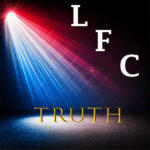By Brian Massie, A Watchman on the Wall
Auburn Career Center’s Board of Trustees continue to spend taxpayers’ money on legal fees fighting their employee’s union Career and Technical Association (CATA).
The following legal brief is the latest filing by the Auburn Board. It appears that they are arguing against a court ruling requiring them to pay into the State Teachers Retirement System (STRS) because they settled on the $1.4 million back pay to the teachers.
You have to admire Auburn’s Board’s tenacity for digging in their heels and spending whatever it takes, since it is not their money, to prove the point that although they have agreed to pay the retroactive compensation, that retroactive compensation somehow is not subject to the STRS rules even though all other compensation paid when earned is subject to STRS.
This logic reminds me of an old Abbott & Costello routine – “Who’s on first?”.
We can only wonder what goes on behind closed doors at Auburn’s Board meetings. If the court rules again for CATA, someone should be losing their job, and the entire Board needs to be replaced. The property taxes collected by Auburn is definitely “TAXATION WITHOUT REPRESENTATION” because the entire Board is appointed and not elected by the taxpayers. They do not report to us!

Just in case there is a lawyer out there that is thinking that we are practicing law without a license, or giving legal advice, allow us to make this obvious statement: We are not lawyers, and are not giving legal advice, but we acknowledge that we were fans of Perry Mason back in the day.
For those citizens that do not speak Latin, allow us to provide some information.
Sua sponte:
“In law, sua sponte or suo motu describes an act of authority taken without formal prompting from another party. The term is usually applied to actions by a judge taken without a prior motion or request from the parties.” Wikipedia
Nunc pro tunc:
“Nunc pro tunc is a Latin term meaning “now for then.” Generally, this refers to an action taken by a court that applies retroactively to correct an earlier ruling. Usually, the term is used relating to the procedural devices of nunc pro tunc amendments or nunc pro tunc judgments.
The purpose of nunc pro tunc actions is understood as correcting the judicial record to remedy clerical issues, clear errors, or prevent injustice, and in doing so more clearly reflects the original intention of the court. As a result, nunc pro tunc amendments and judgments are treated as if they were made on the dates of the original amendment or judgment.”
Categories: Education, Lake County - General
